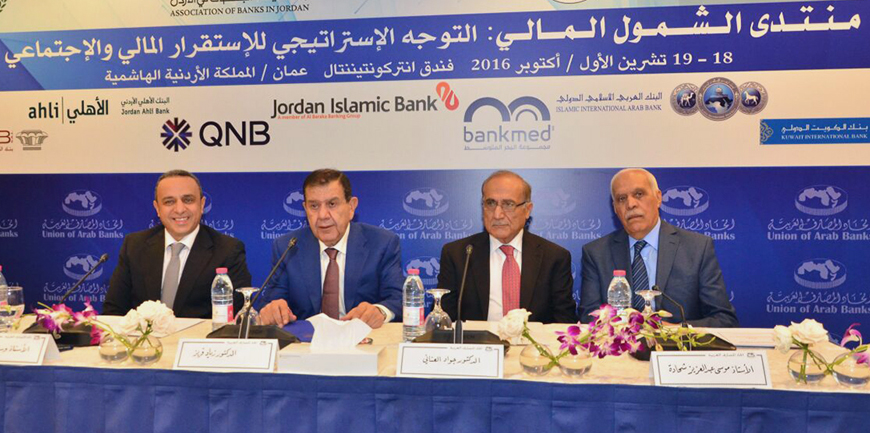AMMAN — Arab banks are capable of solving economic problems in the Arab world with their "huge financial assets”, Deputy Prime Minister for Economic Affairs and Minister of State for Investment Affairs Jawad Anani said on Tuesday.
Speaking at a forum, titled "Financial Inclusion: Towards Strategic Economic and Social Stability”, Anani said banks are meant “to share benefit, not to monopolise it”.
The two-day forum, in which several bankers are participating, highlights the importance of financial inclusion to achieve economic development and financial and social stability.
Addressing the participants, Anani commended recent measures taken by the Central Bank of Jordan (CBJ), backed by the government, to provide for further financial inclusion.
He noted that representatives of shareholders should be on the board of banking entities, saying “board monopoly will adversely affect credit offering and lead to poor credit distribution”.
Under these measures, young people and women, in particular, should benefit from financial tools at a low cost so as to empower these segments and contribute to combating poverty and unemployment, he explained.
CBJ Governor Ziad Fariz said that the latest global financial crisis revealed a structural shortcoming in the global financial and banking systems, noting that more than half of the world’s population does not get to benefit from banks’ services.
He explained that the majority of the population in Arab countries are young people, and those who are below the age of 18 cannot start their own bank accounts to save for the future.
The CBJ governor added that small- and medium-scale enterprises in Arab countries, especially the ones that receive large numbers of refugees, go through great hassle to access appropriate funding at a reasonable cost.
“Information asymmetry represents a huge obstacle for a group of the population and for small enterprises to obtain credit,” he told the forum.
Other speakers, including Association of Banks in Jordan President Musa Shehadeh, underscored the importance of having a stable financial system in order to achieve financial inclusion.
Organised by the Union of Arab Banks, in cooperation with the Council of Arab Economic Unity, the CBJ and the Association of Banks in Jordan, the forum is scheduled to also examine the role of Islamic banks.
Participants will also deal with ways to combat money laundering and eliminate the funding of terrorism, the Jordan News Agency, Petra, reported.
